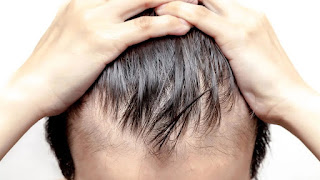How to Find the Best Hair Loss Treatment in the UK | Revive Hair & Skin Clinic!
Introduction
Hair loss is a common problem for many people in UK and worldwide, but finding the proper treatment can be daunting.
Knowing which options will work best for you can be difficult with so many options available.
No worries, we are here to help. The article will discuss seven critical factors to help you find the best hair loss treatment UK. Keep reading to know.
Factors to consider:
Type of Hair Loss:
The primary factor to consider when looking for a hair loss treatment is the type of hair loss you are experiencing.
There are several types of hair loss, like male and female pattern baldness, alopecia, and telogen effluvium.
Each hair loss type requires a different treatment approach, so it is essential to identify the type of hair loss before choosing a treatment.
Treatment Options:
Several treatment options are available for hair loss, including topical treatments, oral medications, and hair transplant surgery.
- Topical treatments, such as minoxidil and finasteride, are applied directly to the scalp and can help stimulate hair growth.
- Oral medications, such as finasteride and spironolactone, work by blocking the hormones that cause hair loss.
- Hair transplant surgery is invasive as it involves transplanting hair follicles from one part of the scalp to another.
Doctors either go for FUT, FUE, or PRP therapy. Revive Hair & Skin Clinic provides all the treatments. But first, a team of hair loss specialists performs a thorough evaluation to determine the cause of your hair loss.
They ask you about your medical history and conduct physical examinations and blood tests. They will recommend the best hair loss treatment right for you based on the evaluation results.
Effectiveness:
When considering a hair loss treatment, it is essential to evaluate its effectiveness.
Some treatments may work better for certain types of hair loss or specific individuals. It is vital to research the success rates of each treatment option and talk to a healthcare professional to determine which one may be right for you.
Safety:
The safety of the treatment option is another critical factor to consider.
Some hair loss treatments may have side effects or associated risks, so weighing the benefits and risks before starting treatment is essential.
It is also vital to ensure that the treatment is safe for long-term use and will not cause harm to your health.
Cost:
Cost is also an important consideration when choosing a hair loss treatment.
Some treatment options may be more expensive than others. But the cost may vary depending on the treatment type and the hair loss's severity.
It is essential to research the cost of each treatment and get a quote from at least three providers.
Accessibility:
Accessibility is also an essential factor when looking for a hair loss treatment.
Some treatments may only be available through a prescription from a healthcare professional, while others may be available over the counter.
It is essential to consider the accessibility of the treatment and how easy it is to obtain and use.
Lifestyle Factors:
Finally, consider your lifestyle factors when choosing a hair loss treatment.
Some hair loss treatments may require a significant time commitment, such as applying a topical treatment daily or undergoing hair transplant surgery.
So, consider how the treatment will fit into your lifestyle and whether you can commit to the treatment long-term.
Conclusion:
Hair loss can be a stressful and frustrating experience, but there are several treatment options available to help stimulate hair growth.
When looking for hair loss treatment, it is essential to consider all these factors and choose the treatment that works for you.
You can talk to a hair expert to know more about the treatment options and get the best advice.




%20(1).png)
Comments
Post a Comment